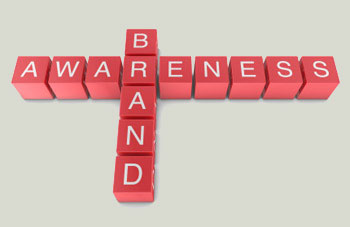SPECIAL REPORTS
|
FRANCHISING FACTS AND BASIC INFORMATIONFranchising traces its roots back to ancient China. It is a system for expanding a business and distributing goods and services. It is a marketing method, which has been called by many business experts, "the greatest marketing strategy ever created". It is a program that creates amazing opportunities for business ownership and personal wealth.
In the United States, only 8% of retail businesses are franchised. The amazing fact is that the 8% of franchised businesses do over 40% of the retail sales in the United States. Franchising has the ability to capture more of the market share. The increased market share is due to three main attributes comprising a franchise:
The Gallup Organization conducted a poll on franchisee's ownership experience and attitudes. Here are some results:
* More than 90% said that their expectations were met or mostly met * More than 90% said they considered their franchise to be successful * More than 65% said that they would have not been as successful if they had tried to open the same business on their own.
Franchises are made up of two types of franchises: product distribution franchises and business format franchises.
1: Product distribution franchises are companies like Ford Motor Company, Pepsico or Goodyear Tires. The franchisee usually manufactures and/or sells the product through retail outlets. Often special preparations at the retail level are needed before the product is sold. Franchisees use the trademarks but usually lack the entire operating system for running the business. Product distribution franchises represent the largest percentage of total retail sales coming from all franchises; however, most franchises are business format franchises.
2: Business format franchises are companies like Subway, Fantastic Sams or GNC. The franchisee uses the trademarks but also uses the franchisors specific operating system. This system teaches the franchisee how to work every aspect of the business, thus producing consistent quality throughout the system.
Sometimes franchising is referred to as an industry, however, it is more so a complete marketing system. More than 80 industries use franchising to get their products, services and brand names to the consumer. Restaurants account for only about one third of the available opportunities, and more than half of franchises available have initial investment levels below $100,000.
Advantages of Franchising
Consumers believe that when they shop at a brand name store they are buying higher quality products. Branding makes it easier to compete with the well-established, independent operators and also against other franchised chains.
Although the cost of entrance into a franchise system includes a franchise fee, the franchisee will benefit from training, operations manuals, site selection, lease negotiation, store design, construction savings, reduced cost of equipment and other advantages in buying power. The franchisor will often save the franchisee many thousands of dollars by suggesting the most effective initial marketing plans and allowing them to use the technology developed to improve operating systems. Franchisees will also have the support of the franchisor as a successful, experienced partner of whom they can ask questions, as well as other franchisees.
The franchisee will benefit from the system as they pay an ongoing royalty which will allow the franchisee to benefit from periodic training programs at the regional office, home office or at the franchisee's location. Through the franchisor's buying system, the franchisee will usually pay much less than their unaffiliated competitors.
Franchisees also benefit from the purchasing power that comes from joining with others. They benefit from professionally designed point-of-sale marketing material, advertising, grand opening programs and other marketing materials that unaffiliated businesses can never afford. Franchise systems are on the forefront of research and development. They have access to the latest techniques, strategies, test markets, new products and operating systems.
Each franchisee's spending power is combined with the spending power of all other franchisees in the local market and the rest of the system. This combined spending power, on advertising for example, often enables franchises not only to dominate local markets and established unaffiliated businesses but to also compete effectively against large, established chains. There are, however, few disadvantages of franchise ownership. One of the main disadvantages of owning a franchise is a partial loss of independence. If a franchisee can not live with the franchise agreement, another business should be considered.
COPYRIGHT 2009 IFS, ALL RIGHTS RESERVED
|


 By
following the franchise system, the franchisees chances of
success increase. Many thousands of dollars can be saved by the
trial and error and experience of the franchisor. The system is
usually predictable. Follow it and you should achieve similar
results of other franchisees.
By
following the franchise system, the franchisees chances of
success increase. Many thousands of dollars can be saved by the
trial and error and experience of the franchisor. The system is
usually predictable. Follow it and you should achieve similar
results of other franchisees.